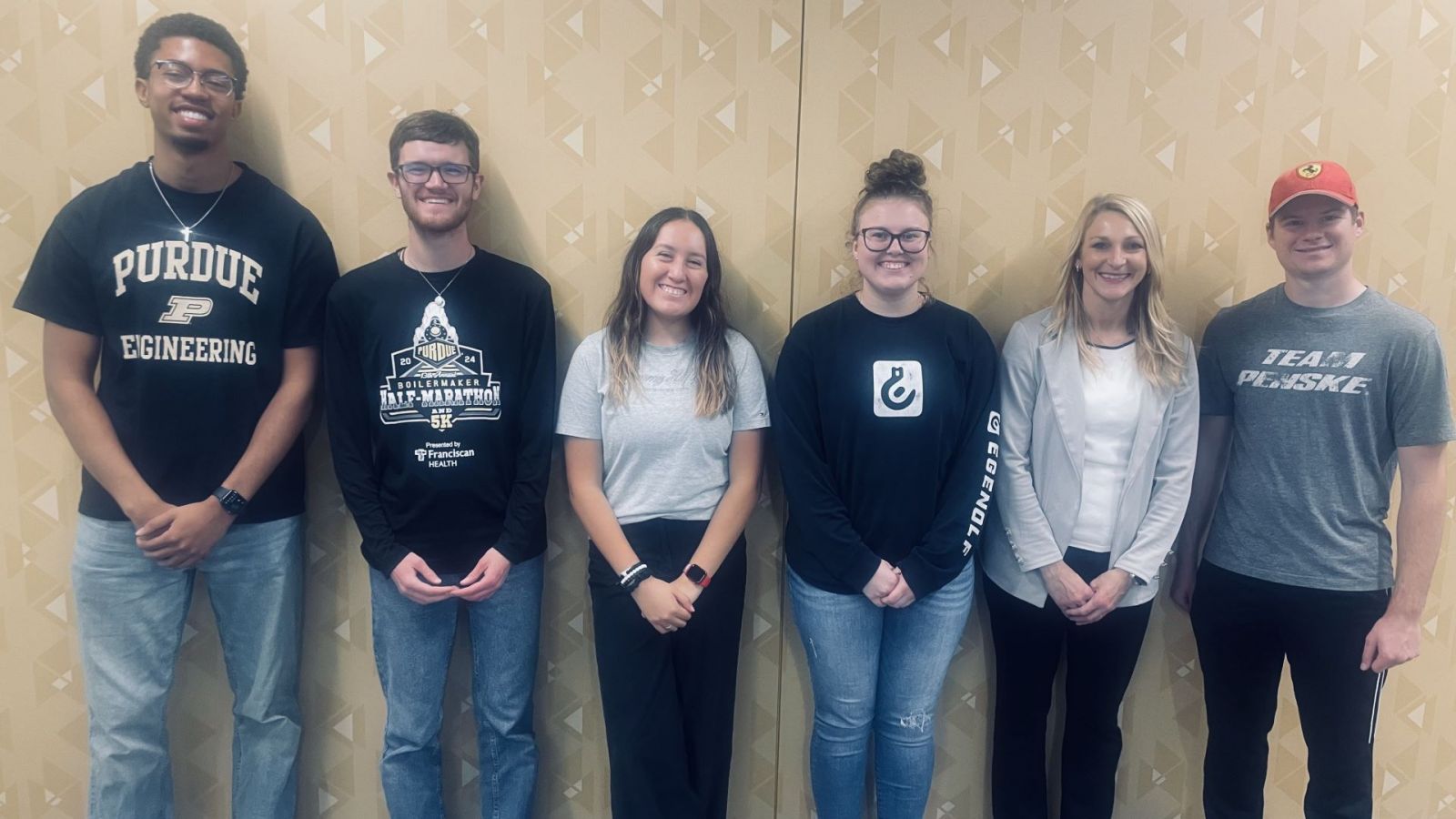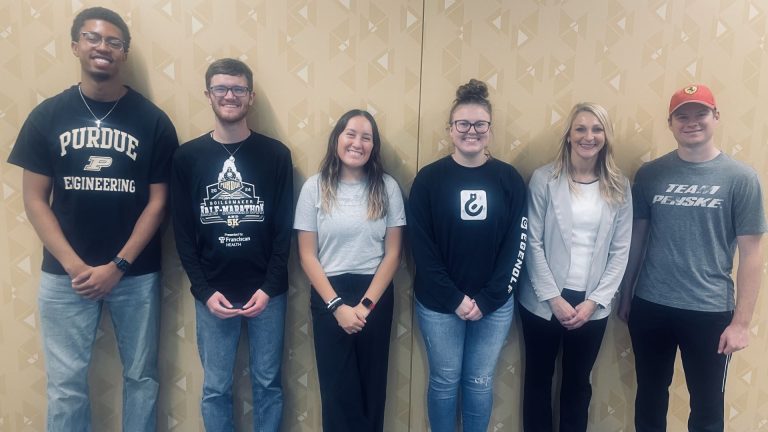
Five engineering technology students use a battery-powered toy as a platform to build an electric wheelchair for a child in the community.
The two-semester project is part of a capstone course taught by Brittany Newell, associate professor in the School of Engineering Technology (SOET). Fisher-Price provided a toy car to Newell’s class, which was transformed into a usable wheelchair and delivered in mid-October to a local family with a child in need of mobility assistance.
Students were challenged to achieve three goals with the capstone project:
-
Make a traditional build for a child in need using a Fisher-Price car
-
Design controls for a 360-degree car with features such as parental controls, obstacle avoidance and ergonomics that meet the different needs of children in the community.
-
Create and include an instruction manual
GoBabyGo was launched by Cole Galloway, a professor at the University of Delaware, to increase mobility and improve the quality of life for children during their early developmental years. The program provides free mobility devices in the form of ride-on cars to families in need, giving children the opportunity to control their own exploration and movement.
Since the program’s launch, new GoBabyGo chapters have formed at universities and service groups around the world. Academic sections give students the opportunity to practice their skills, apply their knowledge, and meet a tangible community need.
The project has a personal connection to Newell, who has a friend with a child in need of a car. When she heard about GoBabyGo, she wanted to find a way to get involved and give back to the community in a way that involved students in experiential learning.
“As important as the product was, as a teacher I saw how meaningful it would be for our students,” Newell said. “At SOET we focus on hands-on learning, but often, especially in early courses like first year, we struggle to complete meaningful real-world projects because students need depth before to be able to carry out complex designs.”
Newell plans to incorporate the concepts learned during this initial GoBabyGo project into lower-level courses. She hopes a more advanced, sensor-based car propelled 360 degrees can be used as a prototype for future deployment in her SOET Gateway to Engineering Technology course, typically offered to first-year students. The most advanced car will be part of a semester-long project that integrates programming, electrical circuits, mechanics, ergonomics, mechanical design, manufacturing, design thinking and human factors.
Newell says the GoBabyGo capstone project is an example of how the Polytechnic Institute’s mission plays out in the classroom, where an applied education rooted in research and innovation empowers students to meet real-world challenges and to advance technology for the good of society.
“I hope the project continues to develop. The needs of the children in our community far exceed our ability to produce cars, but we can make a positive impact in a child’s life, one car at a time.
Newell received initial funding for the project from Purdue, but she hopes to receive ongoing funding to execute the project each semester as part of the capstone course. Newell has an undergraduate degree in biomedical engineering, which she says contributed to her interest in developing medical and mobility devices like motorized wheelchair cars. His previous work includes electroactive polymers, a conveyor belt sensing system, predictive industrial line health monitoring, and much more.
Additional Information


